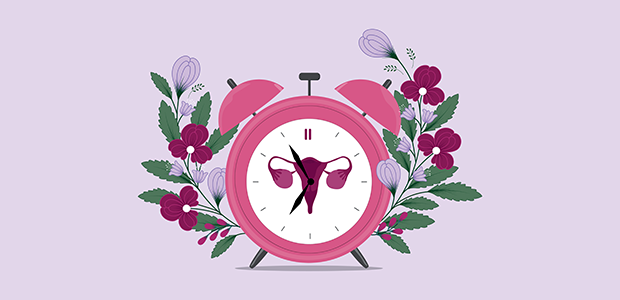
The menopause taboo: how tech can bridge the healthcare gap costing millions
I started Menotracker because of a personal wake-up call. When one of my closest friends was passed over for a promotion simply because her hot flashes during meetings were seen as "unprofessional," I was shocked. Honestly, I didn’t know much about menopause myself at the time. I had no idea how much it could impact women’s lives and careers.
As I researched menopause to support her, I began recognising symptoms I’d been dismissing in myself for months. When I looked for an app to help me track and understand what I was going through, I couldn’t find anything that really fit. That’s when I decided to build Menotracker.
While women’s health is generally largely dismissed by doctors, menstruating women have apps to gather data about their cycles. There was no equivalent for menopause, even though it’s one of the biggest healthcare crises facing women today. Building this startup has revealed something much bigger: a healthcare crisis hiding in plain sight.
The statistics paint a stark picture. One in ten women have left their jobs due to menopause symptoms. Research shows that almost a quarter of working women have considered quitting due to the impact of menopause symptoms at work, with over one in ten actively planning to quit. We're talking about experienced professionals at the peak of their careers – women aged 45-55 who represent decades of institutional knowledge and leadership potential.
Yet this exodus is happening against a backdrop of profound medical ignorance. Research reveals that 58% of medical textbooks worldwide contain no reference to menopause, and only 12% dedicate more than a paragraph to the topic. Meanwhile, studies show that 52% of UK GPs report they weren't offered enough training to advise women with menopause symptoms.
If medical professionals don't understand menopause, how can employers be expected to support their female workforce through it? The result is a vicious cycle. Women experiencing perimenopausal symptoms, which can begin as early as 35, often struggle for years with unexplained conditions. They're frequently dismissed as "too young" or told they're "imagining" their symptoms. Decreased productivity, increased sick leave, and talented women leaving the workforce entirely follow.
Traditional healthcare has failed women during menopause, but technology offers a different path forward. When I couldn't find an app that helped me understand my own perimenopausal symptoms, I realised this wasn’t just my problem. Most period tracking apps function as digital diaries, collecting data but offering minimal guidance. The real challenge is making sense of overwhelming information.
That's why Menotracker combines comprehensive symptom tracking with AI-powered analysis to identify patterns, triggers, and provide actionable insights. Our platform can answer questions like "Has my sleep improved since starting HRT?" or "What triggers my brain fog?" It transforms symptoms into manageable insights, empowering women to advocate for themselves in medical appointments. Unlike existing solutions, we're building specifically for the complexity of menopause, not just repurposing period tracking technology.
In our post-Roe world, health data privacy has become essential. We've seen period tracking apps subpoenaed in legal cases, and menopause involves tracking incredibly sensitive information: incontinence, mental health symptoms, intimate details many women won't discuss with their closest friends. This was one of my absolute priorities when building Menotracker. We’re implementing blockchain-based privacy protection, ensuring that even if our database were breached, stolen information would lead nowhere. Users exist only as encrypted dummy data that cannot be traced to real people.
The contrast with men's health is stark. Erectile dysfunction, for example, is an openly understood, discussed and treated condition, while common menopause-related symptoms – affecting nearly all perimenopausal women if left untreated – remain largely unknown, under-researched and taboo. This represents a massive market opportunity that's been consistently ignored.
The silence around menopause has lasted too long. With menopausal women representing the fastest-growing demographic in the workplace and women controlling 80% of household purchasing decisions, this represents one of the most significant untapped markets in healthcare technology. For entrepreneurs, this is a clear opportunity. For investors, it's a chance to back solutions that serve an underserved demographic with significant purchasing power. For society, it's about finally giving women the support they deserve during a natural life transition.
The future of work depends on recognising that supporting women through menopause makes smart business sense. The technology exists to solve this problem. The market is ready. The only question is who will seize the opportunity.
For more startup news, check out the other articles on the website, and subscribe to the magazine for free. Listen to The Cereal Entrepreneur podcast for more interviews with entrepreneurs and big-hitters in the startup ecosystem.

